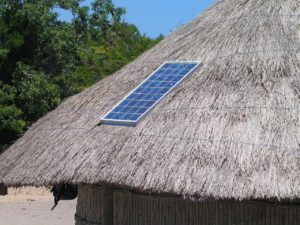Going Solar: Questions and Answers for Homeowners Looking to Save
Tips for When You’ve Decided to Move Forward with a Residential Solar HVAC System

Congratulations! You’ve looked at the numbers, read the reviews, and decided solar works for your home. Welcome to the newest, most popular form of alternative energy around.
Now what?
We get plenty of questions every day from folks in the same boat. How do you move forward in the most economical way? Below you’ll find some answers to the some of the basic issues you may be worried about.
What Kind of Solar Do I Need? How Many Panels? How Big Should They Be?
This is the nitty gritty info you’ll have to have before taking the plunge. The short answer is that it depends on the size of your home, the number of electrical appliances you typically run, and what kind of sun exposure you have on a daily basis. The panels themselves are also variable, with some designs generating more energy that others.
Calculated incorrectly, the wrong choices will cost you money both in terms of inappropriate equipment and higher energy expenses. Avoid the hassles by getting a consultation with one of our professionals before purchasing anything. Call us to schedule an appointment today.
Once you do decide on the right number and type, here’s the good news: most solar panels come with a solid warranty for 20+ years. Make sure you get one to accompany your purchase. Take care of the panels, and they may last even longer, with some experts suggesting 60 years or more!
What Kind of Maintenance Are We Talking About, Anyway?
Here’s another desirable element of the solar equation for homeowners: the answer is “not a whole lot.” Aside from getting your equipment professionally inspected once a year along with the rest of your HVAC system, there’s really very little to monitor aside from battery checks (deep cycle batteries require distilled water, while AGM batteries do not).
Hose the panels off occasionally, but avoid spraying hot panels with cold water to prevent cracking. Otherwise, just check for leaves or other outdoor debris blocking them after a storm or particularly windy period.
Remember, your solar panels have no moving parts. Frankly, the most dangerous or problematic part of taking care of them usually involves someone falling off a ladder while climbing up to take a look. To quote that popular 1970s song: “Billy, don’t be a hero!” If you don’t feel safe climbing (or don’t want your spouse on a ladder), give us a call. We’d be happy to take a look.
How Long Does It Take for a Solar System to Pay for Itself?
While the answer depends on your energy usage and home size, we can estimate about 5-7 years, usually, assuming your utility costs are around 10 cents a kilowatt-hour.
As we suggest in our white paper for commercial customers, preparation for installing solar should always involve doing your own energy audit. Review your utility bills for the past year or two (the utility company is always happy to provide copies of old ones). Discuss your expectations with a solar professional, and ask for information on exactly what you can expect. At Air-Tro, our consultants have not only decades of HVAC experience, but also extensive professional training under their belts. Don’t hesitate to depend on them for advice and information. That’s what we’re here for, and why we’ve been keeping the San Gabriel Valley comfortable for more than 40 years.
Have questions? Need more info on solar before you buy? Call Air-Tro today for a helpful consultation. (626) 357-3535.
